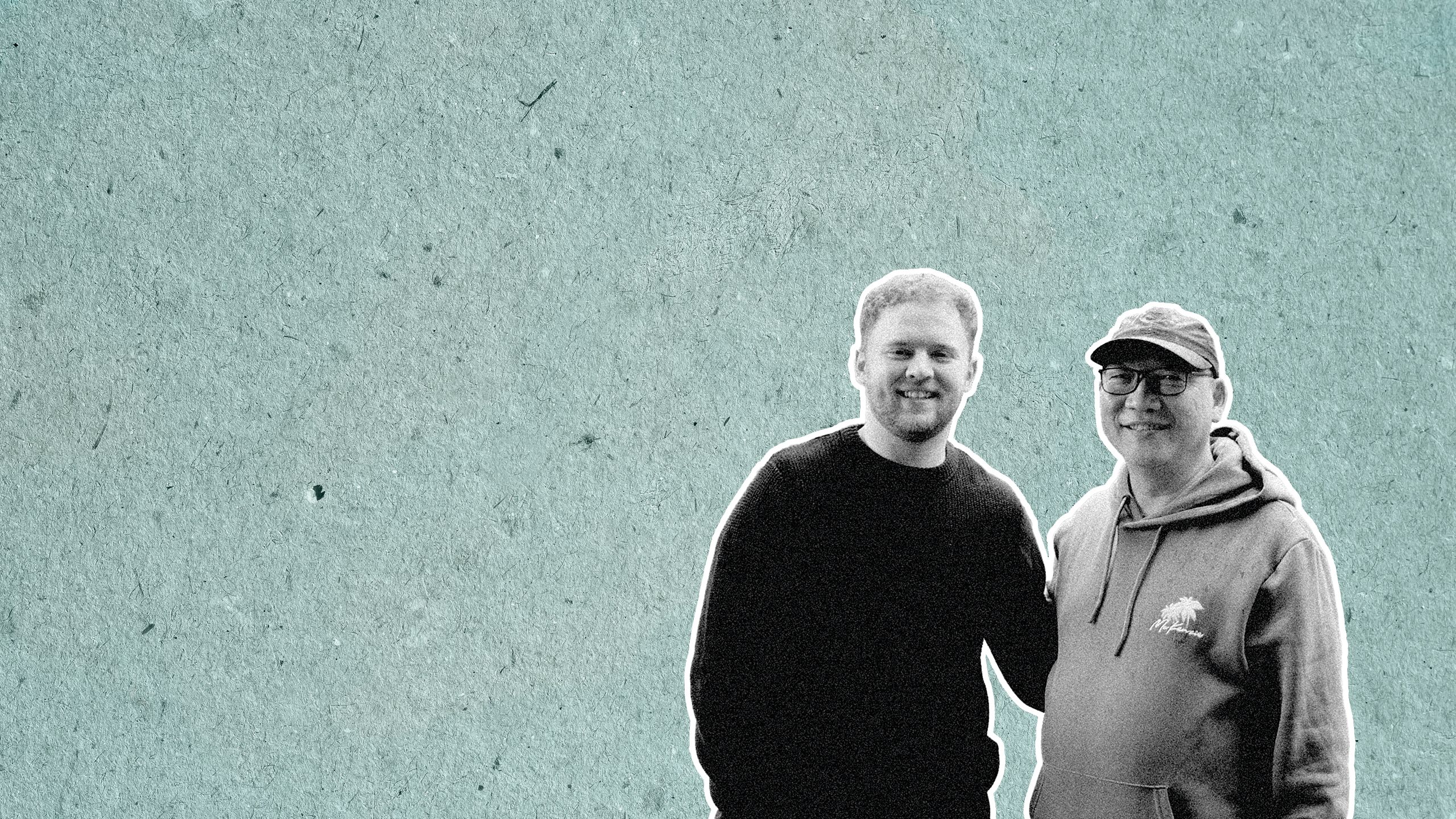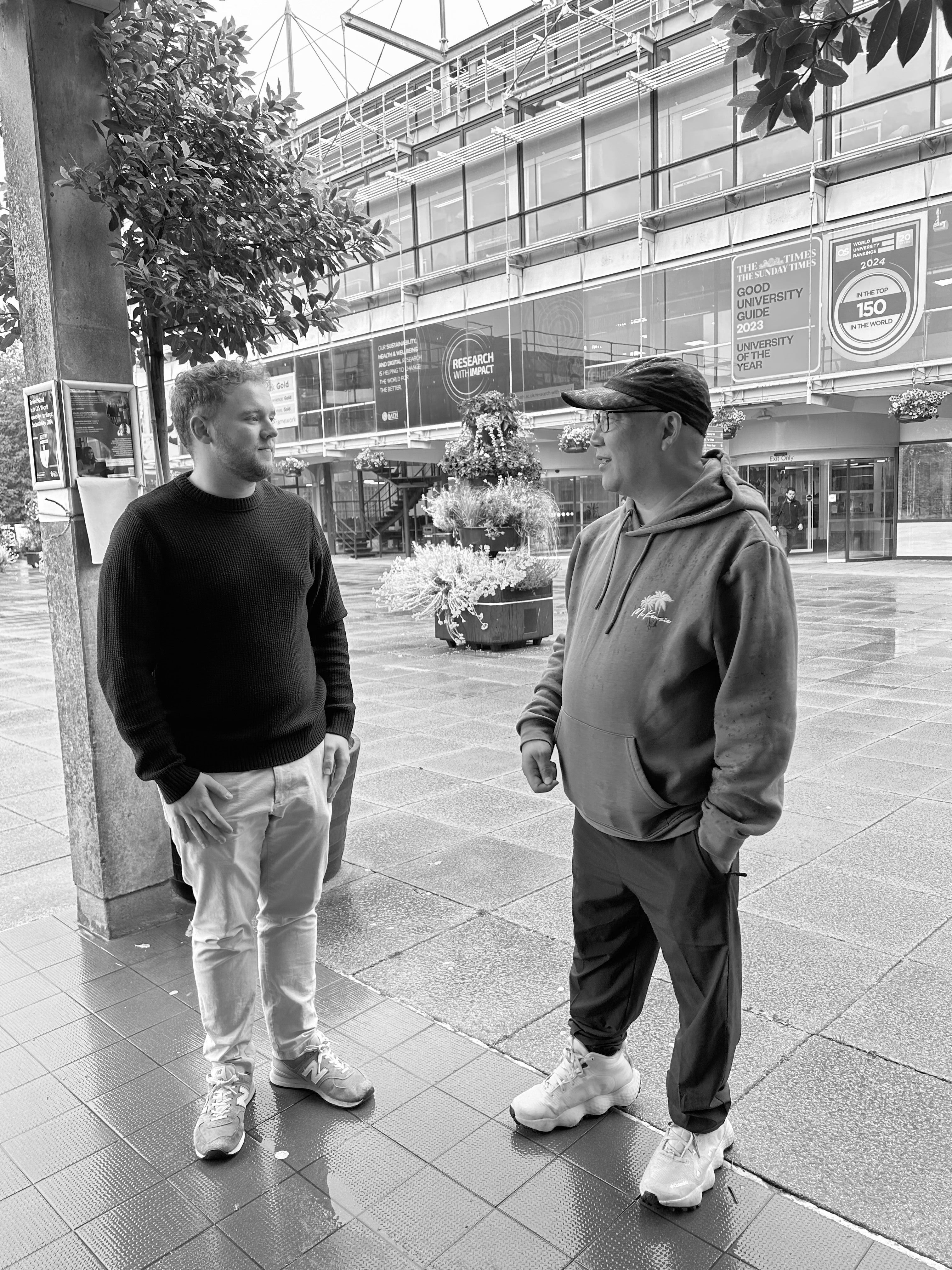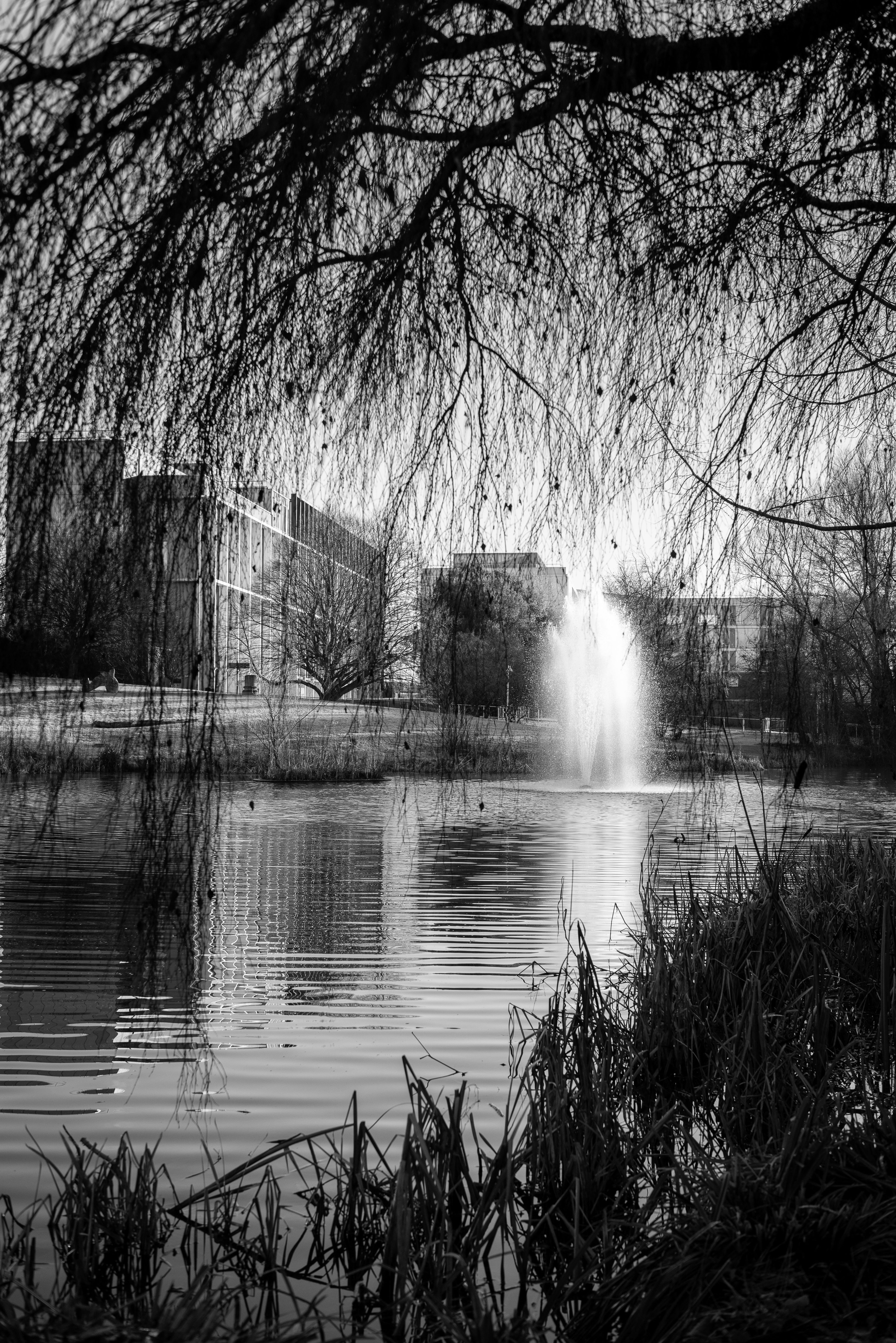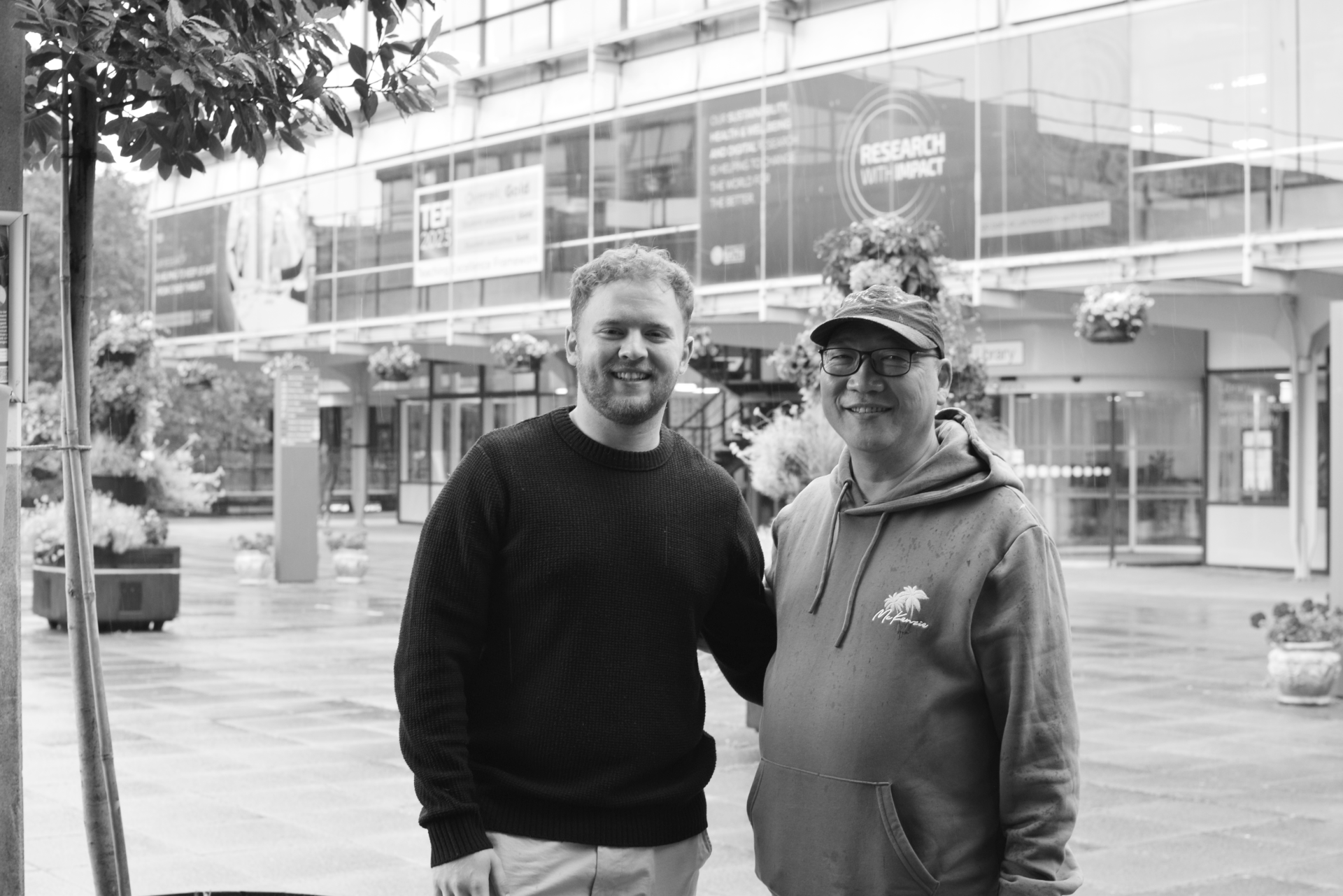Donor meets scholar
Alumnus and donor Wilson Wong meets with former Gold Scholar, Kian Cotton.

Wilson Wong (MSc Social Policy Analysis 1996) has been involved in humanitarian and relief work for 20 years. As Deputy Secretary General of the Hong Kong Red Cross, he worked in Rwanda during the genocide period and was responsible for the worldwide coordination of the 2004 tsunami relief operation. He was also a member of the United Nations Office for the Coordination of Humanitarian Affairs.
Kian Cotton studied pharmacology at Bath thanks to a Gold Scholarship supported by Wilson. Kian was raised by his aunt after his mother passed away from cancer and was the first in his family to go to university. He’s now studying for a PhD in cancer research within our Department of Life Sciences, investigating the progression of medulloblastoma, a paediatric brain tumour and a major cause of mortality in children.
Wilson Wong: I came from Hong Kong to study at Bath [in the ‘90s] and after graduating, I joined the Red Cross. At the time I was the only Asian person and they wanted to recruit people from all over the world. Eventually I had the chance to join the International Committee of the Red Cross and the International Federation of the Red Cross and Red Crescent Societies in Switzerland.
I coordinated international relief for conflicts and natural disasters, such as the Rwandan genocide, the Sri Lankan Civil War and the Indian Ocean tsunami. It was such a meaningful job. I travelled to 35 countries and saw places not many people ever get to see.
My time with the Red Cross gave me good life experience but of course, it was dangerous and harrowing work. I suffered from PTSD and after 20 years, I decided it was time to retire. I still love to travel, and I’ve visited 87 countries. The experiences and opportunities I’ve had have enriched my life and that’s why I wanted to give opportunities to others.
Kian Cotton: I can’t thank you enough for your support; I wouldn’t be here without it. My mother died when I was 11 and my aunt raised me and my three brothers. I was always academically gifted and knew I wanted to go to university. The Gold Scholarship gave me that opportunity.
WW: I’m honoured to support the Programme. [In 2015] I called the University and asked if there was a chance to sponsor students at Bath with the heart to further their studies but with financial constraints. The Gold Scholarship Programme was the perfect match.
Kian Cotton (left) met with donor Wilson Wong (right) on campus
Kian Cotton (left) met with donor Wilson Wong (right) on campus
"The Gold Scholarship levels the playing field and provides the opportunity that every student deserves"
The University's campus lake was one of the reasons Wilson chose to study at Bath
The University's campus lake was one of the reasons Wilson chose to study at Bath
KC: All the scholars I’ve met are students that, like you say, have heart. They didn’t get the opportunities that others may have had – they’re people like me who have lost family members, or they’re young carers or parents – and they have so much work ethic because of where they’ve come from.
The Gold Scholarship levels the playing field and provides the opportunities that every student deserves. They’ve given us skills training in how to network, how to write a CV and do interviews. I was the first in my family to go to university and I had no one to give me advice on these things. Now I volunteer as a Gold Mentor and help new students.
WW: I’m really happy to learn about your experience. Do you have any ideas of what direction you’ll go in after graduation?
KC: I'll definitely stay within cancer research because that’s my passion. It’s also the focus for my PhD. I want to make a difference in this world. In the long term, I’d like to become a lecturer to give back and pass on what I've learned to the next generation.
WW: I’m pleased to hear that. Both my parents had cancer and the first gift I gave to the University was to support cancer research. Can I ask why you chose to study at Bath?
KC: I went to three different university open days and when I came to this campus, I just loved it. I didn’t want to go anywhere else after that.
WW: Exactly! At the time I was looking at universities we didn’t have the internet, but I saw the pictures in the brochure of the lovely campus and the lake and thought ‘wow’. The lake looked a bit smaller in real life [laughs], but I have no regrets. I am so proud to be part of the University and support students like you.


